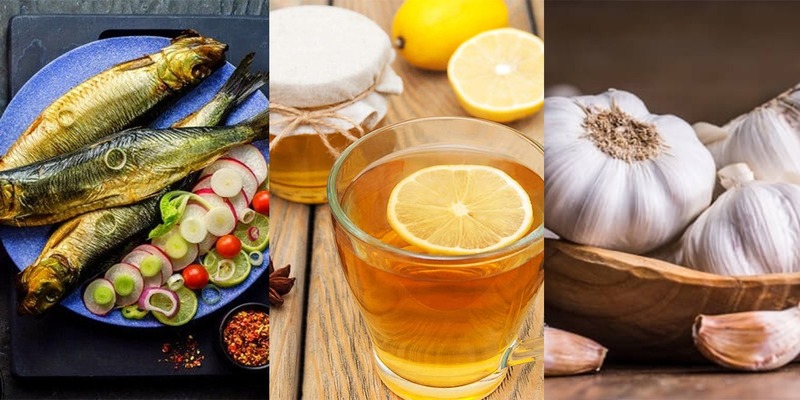Your dietary condition significantly affects your immunological health, infection risk, and recovery time after sickness. Inflammation and oxidative stress, both of which are linked to poor diet, undermine the immune system. High levels of COVID-19 are associated with increased inflammation and oxidative stress.
In March 2020, the World Health Organization proclaimed a global epidemic due to the new coronavirus. COVID-19 is the acronym for severe acute respiratory syndrome coronavirus, which is the full name of the Virus that causes the disease.
Vitamin D

Regarding micronutrients, vitamin D receives the most excellent attention from nutritionists for treating COVID-19. Newer and earlier studies show that this fat-soluble vitamin and hormone has an anti-inflammatory impact by reducing immune system hyperactivity.
Angiotensin-converting enzyme 2 is a protein receptor in adipose tissue and the lungs activated by vitamin D. In the early stages of infection, the new coronavirus binds to ACE2, which may result in acute respiratory distress syndrome and other severe symptoms in persons infected with COVID-19.
Vitamin D, however, interacts with the ACE2 receptors, which may inhibit the Virus from attaching to the receptors and lessen the severity of COVID-19 problems. Protective and tissue-healing roles for vitamin D may also be necessary, especially in the lungs.
Carotenoids And Vitamin A
Carotenoids are not just pigments but also antioxidants. You may find them in foods like algae, bacteria, fungi, plants, fruits, and vegetables of varying hues. Human bodies contain only a tiny fraction of the roughly 700 carotenoids discovered in nature.
Vitamin A and its progenitor, beta-carotene, are two such substances. Fat-soluble antioxidant carotenoid, also known as vitamin A. Due to its anti-inflammatory characteristics, it shows promise as a treatment for respiratory diseases, including pneumonia.
Evidence suggests that vitamin A can mitigate the effects of COVID-19 by lowering inflammation and oxidative stress levels, improving the body's immunological response, and ultimately lessening the severity of the illness.
According to the research, it may protect the ACE2 receptors, like vitamin D does, and may also function on other molecular targets in the fight against COVID-19.
A lack of vitamin A might worsen the symptoms of diseases like COVID-19 in certain people. To remedy this, you may need to take vitamin A pills. Vitamin A supplements may be helpful, but they may conflict with other medications you may be taking, so it's important to discuss this with your doctor first.
Zinc
An increased incidence of infections and worse outcomes in patients with COVID-19 has been linked to zinc deficiency. Zinc is widely recognized as a crucial mineral. Studies have shown that its antioxidant and anti-inflammatory characteristics aid in maintaining healthy eyes and a robust immune system and may even lower the risk of cardiovascular disease.
Zinc, a target of the new coronavirus COVID-19, may minimize the chance of acquiring a bacterial infection while also decreasing the activation of the ACE2 receptors.
As a bonus, it shields lung tissue from damage, suggesting it is a potential therapy for COVID-19. Research on this topic has recently begun. Taking zinc supplements is something your doctor may have offered if they found out you were zinc deficient. Take caution, though, because zinc is hazardous in high doses. Do not deviate from the prescribed amount.
4. Omega-3 Fatty Acids

Anti-inflammatory advantages of omega-3 polyunsaturated fats have been shown, and these benefits extend to brain health, cardiovascular disease, and rheumatoid arthritis, among others.
People with COVID-19 may benefit from these omega-3 fats, especially eicosapentaenoic acid and docosahexaenoic acid. However, better quality human research is required before healthcare practitioners may advocate using it for this reason.
Scientists believe they do this by integrating into cell membranes in numerous organs, thereby blocking inflammatory chemical formation.
Additionally, omega-3 fats may help persons afflicted with or recovering from COVID-19 by reducing feelings of worry, despair, and irritability, all of which can be exacerbated by the new coronavirus pandemic. Omega-3 fats may have a therapeutic effect in the treatment of COVID-19, and studies are conducted to establish this.
Vitamin C
Vitamin C is a powerful antioxidant that helps keep immune systems strong. Vitamin C has shown promise in several areas; it has been shown to help with oxidative stress, boosts endothelial function to prevent cardiovascular disease, and speed up recovery time after a cold in both animal and human trials.
Recent studies show that administering vitamin C to persons with COVID-19 may help them recover and improve. Although some in the scientific community debate its utility, vitamin C may have a role in preventing and managing pneumonia and other bacterial diseases like sepsis.
Some preliminary data show that vitamin C supplementation may aid COVID-19 patients; however, further human trials are required to draw firm conclusions.

Here's How to Combat Acne Effectively or Sensitive Skin
Mar 12, 2024

What You Should Know About Cramps And Causes Of Leg Cramps
Nov 23, 2023

These Cooking Errors Can Ruin Thanksgiving
Nov 20, 2023

Do Lactic Acid Buildups Cause Post-Workout Muscle Soreness?
Feb 16, 2024

Effective Strategies and Remedies for Minimizing Crepey Skin
Mar 12, 2024

What To Eat When You Have Heartburn: Easy Recipes
Jan 12, 2024

The Ultimate Guide to Understanding and Treating Stretch Marks
Mar 12, 2024

The 5-Move Stomach Workout You Can Do At Home To Build Core Strength
Oct 26, 2023



